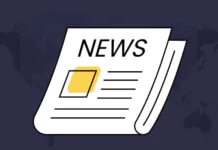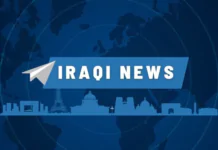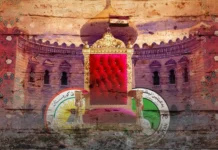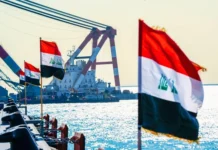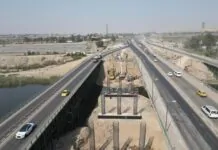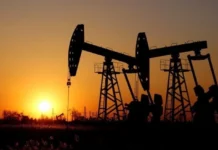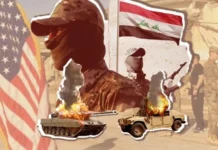Rehabilitation Is The Cornerstone Of Reform
Economic 09/18/2025 Yasser Al-Mutawali Amidst the reform efforts undertaken by banks, and after overcoming the obstacles of capital and time frames that represented the primary concern, a more fundamental and profound need emerges, one that penetrates the very core of daily banking operations: human resources.
No matter how robust the reform document prepared by a global company specializing in the clarity of its objectives, and no matter how precise the laws and regulations, the ability of institutions to implement them remains dependent on the human capacity that will bear these burdens and translate them into a tangible reality
Hence, it becomes imperative to enroll banking personnel at all levels, including senior bank management, in specialized training courses. This is a strategic necessity no less important than raising capital, and indeed, it is the sole guarantee of capital sustainability and growth.
A reform document aimed at enabling Iraqi banks to keep pace with changes and operate in accordance with practices in developed countries, as I mentioned, necessarily requires a staff that understands the philosophy of these changes and masters the tools used in those countries.
A bank cannot, for example, implement the Basel standards, manage its risks in a modern manner, or keep pace with the financial technology revolution with staff that have not received adequate training in these concepts, which were not even present in the old academic curricula.
Therefore, attention must be focused on the Iraqi Private Banks Association’s training center, which should spearhead this developmental endeavor. This center’s role should not be limited to isolated basic courses, but rather should launch an ambitious and comprehensive program that rehabilitates the banking industry from its roots. This program should include:
First: Specialized courses in modern banking management, focusing on governance, financial and operational risk management, compliance with international and local central bank requirements, contemporary banking marketing strategies, and customer relationship management in the digital age.
Second: Workshops on digital transformations to explain the importance of shifting from traditional banking to e-banking, how to manage the digital transformation process, and how to secure digital channels and user experience, thus bridging the digital gap between Iraqi banks and their global counterparts.
Third: Intensive programs to teach AI technologies and their banking applications.
This is the core of the challenge and the opportunity. Staff must learn how to use AI to analyze big data to assess customer creditworthiness, how it works in combating financial fraud, and how it can contribute to the development of customized financial products and process automation to reduce costs and increase efficiency. Investing time and money in building modern skills for banking sector workers is an investment to ensure the success of any reform document, now and in the future.
It is the guarantee against the double-digit losses that experts have warned against, because a qualified staff is the one who will avoid costly mistakes, face changes with confidence, and ensure that reform is real and fundamental, not merely superficial and based on paper.
The upcoming challenge is not just financial or legal, but primarily educational, technical, and human. Neglecting this aspect will render any achievement in terms of capital or laws fragile.
Therefore, the moral and professional responsibility we bear compels us all to demand that the training and qualification of human resources be the primary focus of the next phase of the reform journey, so that the project is completed and bears the desired fruits for the country’s economy.
If there is one word that must be said, it is that the Association and its center have the ability to attract highly qualified training competencies with proven experience. https://alsabaah.iq/120743-.html
Central Bank: 5.6 Million Cards For State Employees
September 17, 2025 Baghdad/Iraq Observer The Central Bank of Iraq revealed on Wednesday that the number of employee cards with domiciled salaries has reached approximately 5.6 million cards.
Adnan Asaad, Director General of the Information Technology and Payments Department at the Central Bank of Iraq, said,
“The number of domiciled employee cards has reached approximately 5.6 million cards,” indicating that “the volume of government electronic collections via points of sale so far has reached more than 6.8 trillion dinars in the first eight months of this year,” expecting that “it will exceed 10 trillion dinars by the end of this year, while last year it amounted to approximately 9 trillion dinars.”
He explained that “the total government e-collection through various payment instruments amounted to approximately 2.1 trillion dinars, while last year it amounted to approximately 322 billion dinars,” noting that “49 ministries and agencies have approved the deployment of e-payment instruments in more than 6,600 formations,” according to the government-owned Al-Sabah newspaper. https://observeriraq.net/البنك-المركزي-5-6-ملايين-بطاقة-لموظفي-ال/
Associated Gas: A Qualitative Leap In Iraq’s Economic Capabilities
Economic 09/18/2025 Baghdad: Morning The Ministry of Oil’s announcement of the production of 220 million standard cubic feet per day of associated gas from the West Qurna field is of great importance as it is part of the government’s efforts to reduce waste from this important resource and provide clean energy for power plants and factories. The expansion of the West Qurna field will provide electricity production with 250 megawatts by 2027.
Furthermore, reducing and eventually halting flaring will support self-sufficiency, contribute to increasing job opportunities, developing infrastructure, and reducing the negative environmental impacts of flaring.
In a picture confirming the government’s insistence on fully exploiting energy resources, Prime Minister Mohammed Shia al-Sudani sponsored, last Sunday, the signing ceremony of contracts for the implementation of several major projects within the “Integrated Gas Development Project” (GGIP) in the Artawi field in Basra Governorate, which includes the production of oil, gas and clean energy.
The Joint Operating Agreement (JOA) was signed between the Ministry of Oil, the French company Total, the Basra Oil Company and Qatar Gas Company, in the presence of the Qatari Minister of Energy Saad bin Sherida al-Kaabi, the CEO of the French company TotalEnergies Patrick Pouyanné, the Chairman of the Board of the Turkish company Enka Mehmet Tara, the Vice President of the Chinese company (CPECC) Liu Kai, and the Chief Operating Officer of the Korean company Hyundai Ryu Sunga, in the presence of the Deputy Prime Minister for Energy Affairs and the Minister of Oil.
Meanwhile, Hatem Abdul Imam, Director of the West Qurna 2 Development Authority at the Basra Oil Company, affiliated with the Ministry of Oil, said in a statement carried by the Iraqi News Agency (INA):
“The current production of associated gas from the Mushrif reservoir is approximately 220 million standard cubic feet per day, of which 180 million cubic feet are supplied to Total as part of its contractual obligations, while the remainder is used to operate the field’s internal facilities.”
This achievement is a significant economic factor, according to several experts, who commended the government’s efforts to exploit natural resources. Industrial development expert Amer Al-Jawahiri emphasized this, explaining that “investment in gas has clear positive effects on the economic and investment sectors in particular, especially since the business environment in Iraq has become attractive to global investment companies.”
Al-Jawahiri added, in an interview with Al-Sabah, that “reaching actual implementation of gas investment, after years of delay, is extremely important, and we will actually achieve full gas investment in Iraq within a few years. He indicated that this would have major financial benefits for the country, in addition to its positive environmental impact.”
System Stability
Al-Jawahiri pointed out that this approach will achieve stability in the electricity system by providing the necessary quantities of gas to operate the stations. It will also support the country’s treasury by reducing expenditures on importing gas from outside Iraq. He noted that gas investment enhances Iraq’s financial revenues, especially given the political will to maximize the benefits of all resources.
Integrated Development Project
For his part, economic expert Asaad Al-Rubaie considered investment in associated gas a project of paramount importance to the economy, given that it is a rentier economy that relies primarily on oil as a source of support for the federal budget.
He explained that it is an integrated development project that links gas investment, reducing its imports, providing electricity, supporting the industrial sector, and providing huge sums to the state’s public treasury.
Associated Gas Investment
Al-Rubaie told Al-Sabah: “Investing in associated gas is almost the only project that has multiple benefits associated with it. From a financial perspective, it will save us billions of dollars that were spent on importing gas from abroad, and it will also enable us to manufacture, sell and export it abroad.
He pointed out that this process will support revenues and provide hard currency, and this money will be directed towards development plans to support other sectors.
In addition, it will increase Iraq’s capacity to produce electricity and dispense with importing it to feed gas stations.
Providing Job Opportunities
The spokesman explained that the stability of the electrical power supply is the cornerstone of any industrial project that relies on modern mechanization, which will increase the chances of establishing various projects that will support the general budget, diversify sources of income and provide many job opportunities for young people.
He pointed out that Iraq is one of the countries that signed the Paris Climate Agreement in 2015, and this investment will reduce the quantities of gas flaring that have greatly harmed the environment.
This is in compliance with this agreement and an improvement of Iraq’s image in international forums in the environmental field, and opens the doors to investment in energy.
Green.
Stop Gas Flaring
Al-Rubaie continued, saying that stopping the flaring of gas will pave the way for the launch of transformational and strategic industries in the future, such as petrochemical plants, fertilizers, plastics and synthetic rubber industries, adding that investing in associated gas has many other economic benefits and impacts that are attributed to the direction of the current government headed by Prime Minister Mohammed Shia Al-Sudani, which has begun investment operations for associated gas and signed a number of agreements with various international companies to stop the waste of wealth.
The country. https://alsabaah.iq/120742-.html Rehabilitation Is The Cornerstone Of Reform
Economic 09/18/2025 Yasser Al-Mutawali Amidst the reform efforts undertaken by banks, and after overcoming the obstacles of capital and timeframes that represented the primary concern, a more fundamental and profound need emerges, one that penetrates the very core of daily banking operations: human resources.
No matter how robust the reform document prepared by a global company specializing in the clarity of its objectives, and no matter how precise the laws and regulations, the ability of institutions to implement them remains dependent on the human capacity that will bear these burdens and translate them into a tangible reality.
For current and reliable Iraqi news please visit: https://www.bondladyscorner.com
